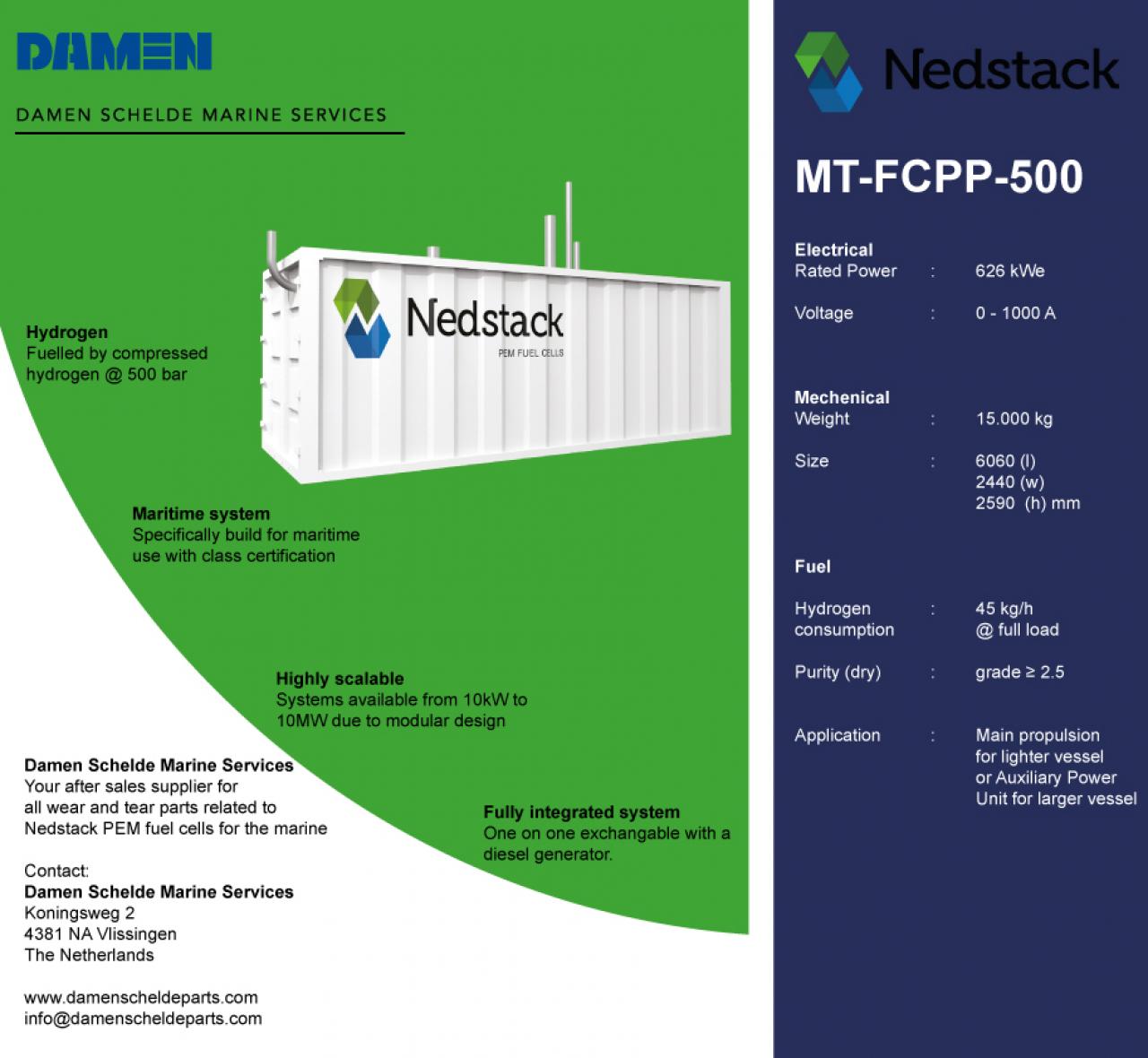Fuel cell technology
Smartly combined power plant topologies comprised of fuel cell powerpacks and high-grade batteries promise to enable techno-commercially feasible zero emissions shipping.
According to the IMO, 90% of all world trade is done by sea. The amount of greenhouse gases (GHG) produced by the shipping industry amounts to a 3.5-4% share of the global total. NOX accounts for between 18% and 30%, and SOX accounts for around 9% of the global total – and these percentages are even more worrying. The IMO recently publicized its aim to achieve a 50-100% reduction in GHGs worldwide before 2050. In order to achieve a 50% reduction in outright GHG emissions, the majority of new ships built in the 2030s will have to be zero emissions.
Much of the industry’s efforts has been focused on the application of batteries in ships for both APU and main propulsion power applications. However, widely known issues with battery-powered vessels include a low power density from both a weight and volume perspective, the resulting impact on payload and range, and longer turnaround times due to re-charging.
Zero emissions technologies
Proton exchange membrane (PEM) fuel cells are electrochemical reactors in which a fuel and an oxidant are made to react in an
electrochemical manner. Such reactors, as opposed to combustion reactions, do not produce any emissions other than pure water and can be scaled to multi-megawatt power ratings. The combination of hydrogen as an energy vector and fuel cells as power plants, in combination with batteries, enable a zeroemissions propulsion configuration that can enable far longer ranges, higher payloads and faster turnaround times.
In a vessel, the art is to engineer the power-split between both energy systems in such a manner that efficiencies, lifetime and total cost of operations are optimally balanced for the ship’s intended use. Nedstack was one of the first innovators in maritime fuel cell applications and saw
its first fuel cell-powered passenger vessel approved in 2011. Ever since, the company has focused on the industrialization of its
technology portfolio to meet cost targets and industry supply chain requirements to allow for technology scale-up and market
penetration. Today, Nedstack offers a portfolio of maritime fuel cell power plants for a large variety of vessel types. The configure-to-order technology includes fuel cell APUs, main-propulsion power plants and fuel cell shore-power units for providing clean power at ports.
The role for Damen Schelde Marine Services
As dedicated after part supplier for marine diesel engine parts for the marine industry we intend to set up the spare parts supply for the aftermarket from fuel cell power plants.
With a large database of clients in the merchant industry for spare parts for traditional marine diesel engines we are happy and dedicated to become sales partner for Nedstack.






